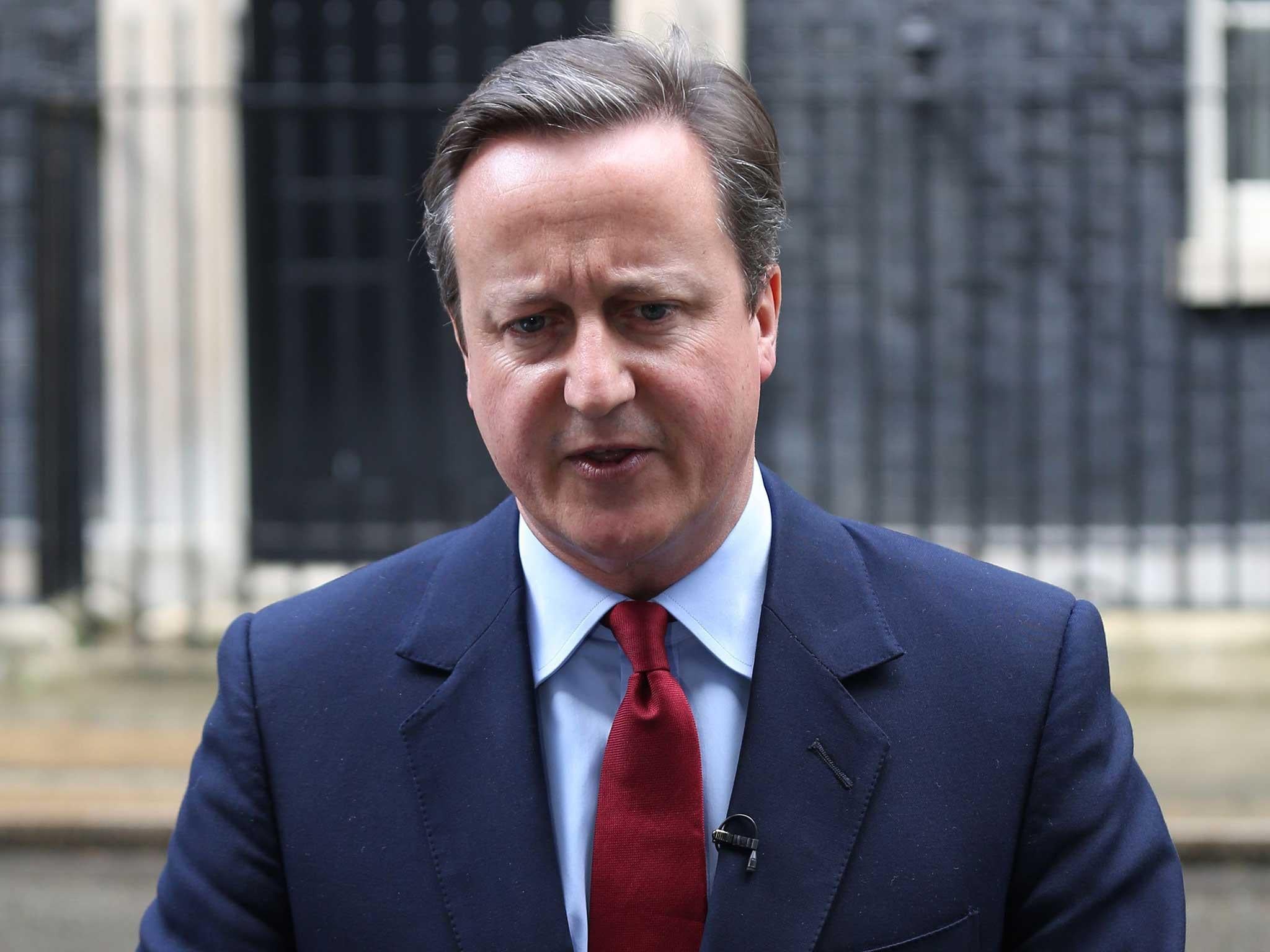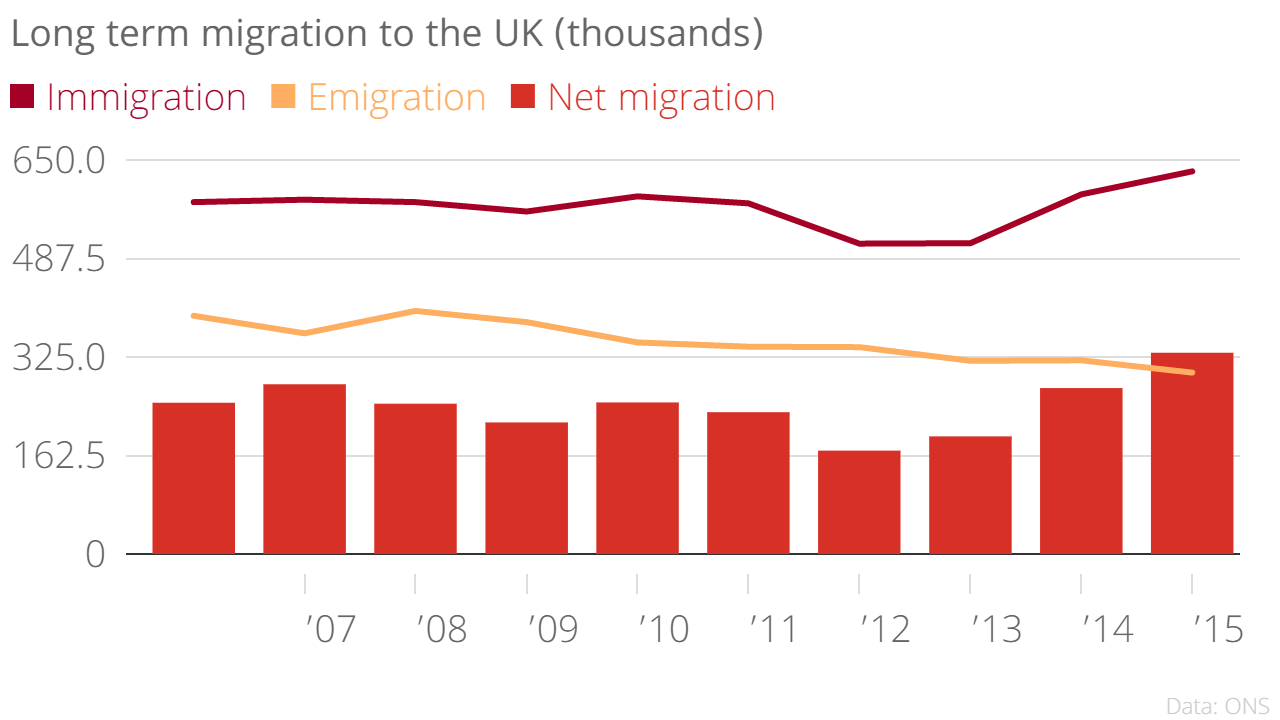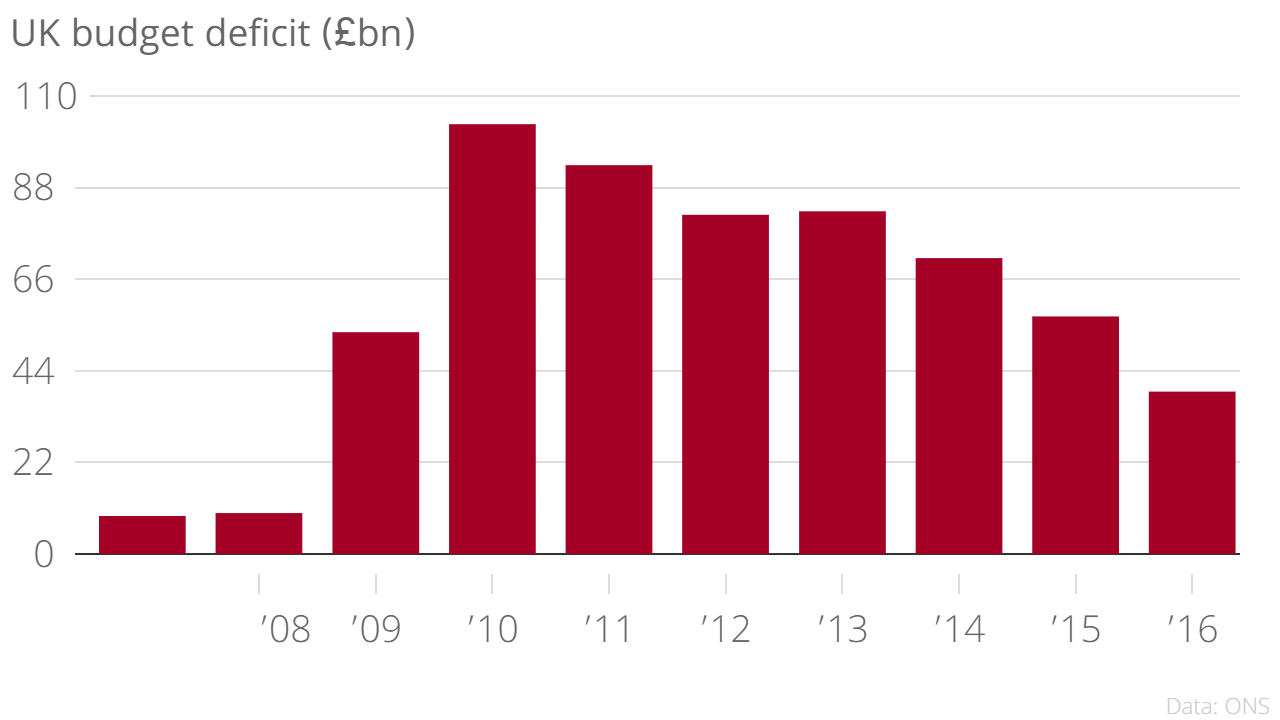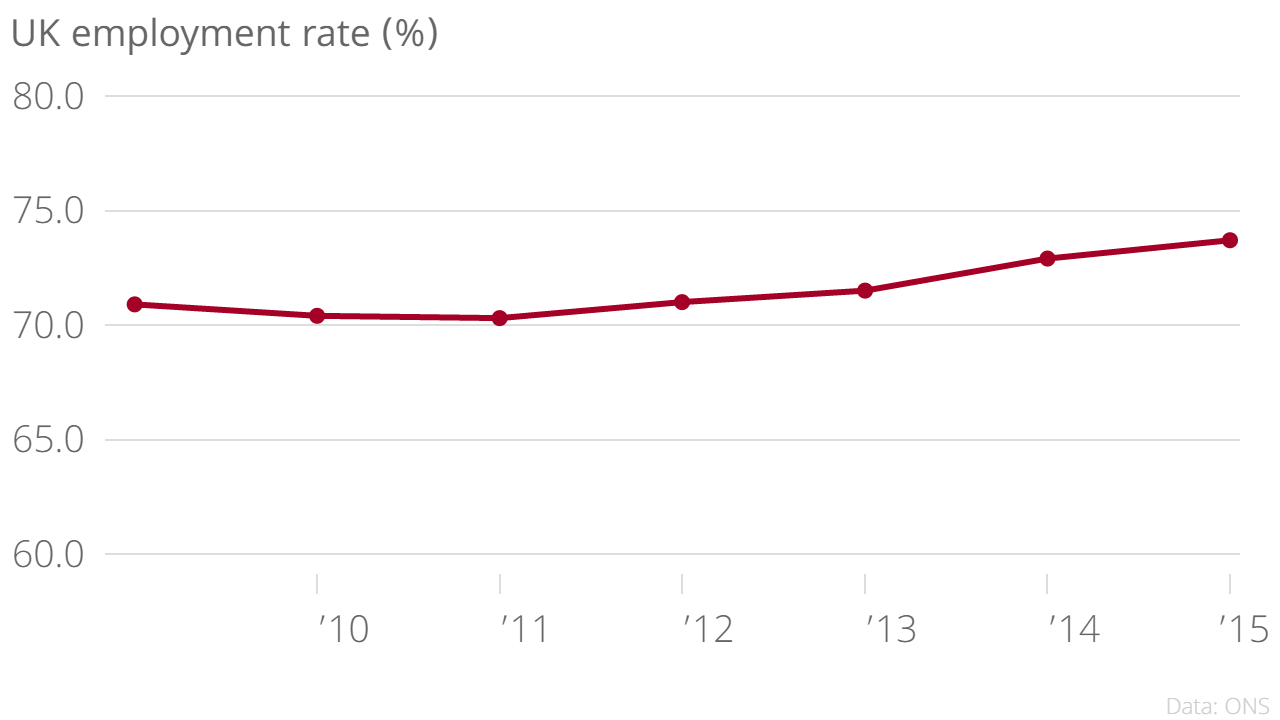David Cameron resigns: The Prime Minister's legacy in 10 charts
From rocketing house prices to record employment: an analysis of the one-nation Tory

Your support helps us to tell the story
From reproductive rights to climate change to Big Tech, The Independent is on the ground when the story is developing. Whether it's investigating the financials of Elon Musk's pro-Trump PAC or producing our latest documentary, 'The A Word', which shines a light on the American women fighting for reproductive rights, we know how important it is to parse out the facts from the messaging.
At such a critical moment in US history, we need reporters on the ground. Your donation allows us to keep sending journalists to speak to both sides of the story.
The Independent is trusted by Americans across the entire political spectrum. And unlike many other quality news outlets, we choose not to lock Americans out of our reporting and analysis with paywalls. We believe quality journalism should be available to everyone, paid for by those who can afford it.
Your support makes all the difference.It's inevitable that David Cameron's reign as Prime Minister, both as the head of the coalition government from 2010 and with an outright majority from 2015, will be overshadowed by Brexit.
The UK's vote to leave the EU, if it is to go ahead as planned, will fundamentally change the country and its position in the world.
In his victory speech, Mr Cameron, the youngest Prime Minister since Lord Liverpool in 1812, said: "Our manifesto is a manifesto for working people and as a majority government we will be able to deliver all of it: indeed, it is the reason why I think majority government is more accountable.
"Three million apprenticeships, more help with childcare, helping 30m people cope with the cost of living by cutting their taxes building homes that people are able to buy and own, creating millions more jobs that give people the chance of a better future and yes, we will deliver that in-out referendum on our future in Europe."
But as the MP for Witney is replaced by Theresa May as leader of the country, it's worth looking at Mr Cameron's legacy: a one-nation Tory who wanted his party to stop “banging on about Europe”.
House prices
According to data from the Land Registry, average UK house prices have risen from £161,148 in 2009, just before Mr Cameron became Prime Minister, to £206,953 in 2016 – a 28 per cent increase.
But in London, which continues to be far more expensive than anywhere else in the country, the average house price is now more than £470,000.

In context, that's compared with the median average UK salary of £27,531 last year.
Balance of Payments
From a position of near-parity in 1997, the UK's balance of payments – transactions between a country's residents and its nonresidents involving goods, services and income – is now at a historic low.
In 2015, the UK’s current account deficit was £100.2 billion, or 7.2 per cent of the country's GDP, the highest ever recorded.

Immigration
David Cameron's 2010 pledge to reduce net migration to "tens of thousands" is now in tatters.
In 2015, net migration was up to 332,000, and left Nick Clegg, the former Deputy Prime Minister, saying they "failed spectacularly to deliver".

Hate crime
The aftermath of the EU referendum has led to a spate of racist hate crimes being perpetrated, with a 42 per cent rise for the last two weeks in June compared with the year before.
But in the last two years of Mr Cameron's leadership, hate crimes as a whole have grown significantly.
Between 2012/13 and 2014/15 alone, reports of hate crimes increased by 25 per cent, reaching 55,000 over the year.

Poverty
Although there are questions to be raised over how poverty is measured, over Mr Cameron's reign, there was a slight decrease in overall and persistent poverty rates.
Persistent poverty dropped from 8 per cent of the population in 2009 to 6.5 per cent in 2014, the most recent figures available.
Relative poverty means a person can't afford to live an ordinary, pleasurable life, whereas absolute poverty tends to refer to being unable to afford the basic needs of life – the latter definition is not monitored by the UK government.

Suicides
The rate of suicide across Britain showed a general upward trend, from 10.2 suicides per 100,000 of the population to peak of 11.1 in 2013.
A 20-year high of 3,899 was reached for female suicides in 2015, according to figures released by the Ministry of Justice.
Suicides in prisons also rose signficantly to an eight-year high.

Homelessness
Under Mr Cameron, the number of statuorily homeless people in the UK rose for six consecutive years.
Westminster, where the Houses of Parliament is situated, is the worst affected area in the entire country.
Meanwhile, rough sleeping on London’s night buses increased 121 per cent in the past four years, according to an internal report by Transport for London.

The Budget
The budget deficit is at its lowest point in Mr Cameron's time as prime minister, but even then at £39 billion, it is more than four times the level it was when the year before he arrived in office.
In 2010, that figure peaked at an eye-watering £103 billion, though reductions have been made since.
George Osborne's 2016 Budget, however, was geared benefit the to 10 per cent most wealthy households in the UK, according to analysis by the Institute for Fiscal Studies and the Resolution Foundation.

Inflation
The Consumer Price Index (CPI), the official measure how expensive goods and services are, fell from 4.5 per cent in 2010 to on average 0 per cent in 2015.
This level of is well below the 2 per cent the Bank of England is mandated by the Government to target.
In fact, last year the UK experienced a period of deflation not seen since the 1960s.

Employment
In 2016, the number of people in work reached a record high of 31.42 million, according to the Office for National Statistics.
The rate of employment among 16 to 64-year-olds rose from 70.4 per cent in 2010 to 73.7 per cent in 2015.
How Brexit will affect this remains to be seen.

Join our commenting forum
Join thought-provoking conversations, follow other Independent readers and see their replies
Comments